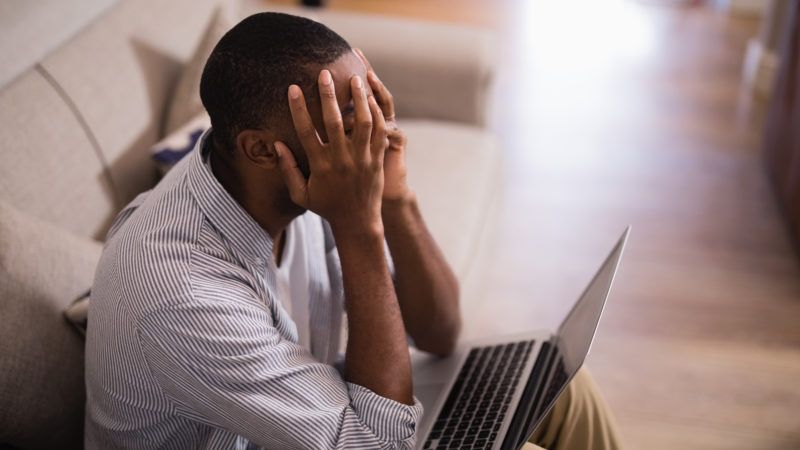The Paycheck Protection Program for Small Businesses Will Run Out of Money Today
The $349 billion loan program is meant to help small companies hit hard by social distancing.

The Paycheck Protection Program—the $349 billion stimulus loan program intended to help struggling small businesses amid COVID-19 shutdowns—will run out of money today, according to a new report from The Wall Street Journal.
As of Wednesday afternoon, the Small Business Administration (SBA) had approved about 1.4 million loan applications totaling $301 billion in funding. The remaining $48 billion is expected to be exhausted by the end of the day, with congressional Republicans and Democrats currently negotiating a deal to make additional funding available.
Both parties are amenable to funneling another $250 billion toward the loan program, though Democrats have said they will only move forward if the proposal doubles that sum and uses the remaining money for state and local governments as well as hospitals.
"Democrats will not stop fighting for money for small businesses, and hospitals, and testing, and our state and local governments, and more to help fight coronavirus," tweeted Senate Minority Leader Chuck Schumer (D–N.Y.) on Monday.
House Speaker Nancy Pelosi (D–Calif.) wants to add additional stipulations to the small business program that would seek to help rural and minority-owned businesses as well as small firms.
The loan program got off to a rocky start, with the SBA E-tran site crashing and banks confused about loan terms. That's understandable considering the speed with which the program was created and that financial institutions were given loan terms 12 hours before the Paycheck Protection Program officially launched on April 3.
But the condensed timeline and the first-come-first-serve nature of the program means that many small businesses have not been able to secure any funding. Several banks initially declined applications from prospective borrowers who didn't have a previous history with their institutions. Bank of America, which received the biggest blowback for doing so, eventually relented but required that applicants not have a borrowing relationship with any other institution.
Restaurants, hit exceedingly hard by coronavirus-related social distancing, have come out on the losing end of the application process. Hotels have also struggled, although some have criticized large chains' ability to make use of the small business stimulus: The Paycheck Protection Program carved out an exception for the hotel and restaurant industries, allowing bigger companies to apply for loans so long as they employ less than 500 employees at each physical location.
Businesses that do receive loans may find it difficult to have them forgiven, as they are only eligible for loan forgiveness if they use 75 percent of the funds on payroll expenses. (The original stipulation in the Paycheck Protection Program was 50 percent, but the Treasury Department altered it after the fact.) That will be exceedingly hard for business owners to do when they have no business and rent to pay.
For now, lawmakers are focused on making sure that eligible small businesses aren't shut out altogether. Sen. Marco Rubio (R–Fla.), Chairman of the Senate Committee on Small Business and Entrepreneurship, said that participating banks are no longer operating under vague terms, but that they have a shortage of such lenders. "That's why we created path to bring in new lenders, including non-bank lenders," he tweeted. "To create more access for #smallbusiness we need to speed up bringing in new lenders ASAP."


Show Comments (15)